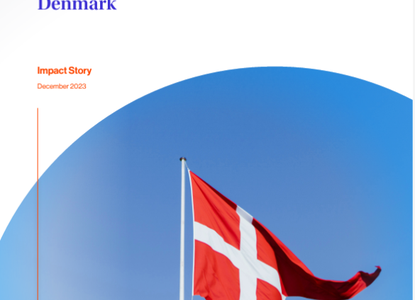What’s in it for business? The US case: Lessons from private sector and civil society advocacy for beneficial ownership transparency reforms
Help us understand how you are making use of resources from the Open Ownership website by filling out this short survey
Publication type
Case study
Publication
Country focus
United States of America
Summary
Beneficial ownership transparency (BOT) reforms aim to create a more transparent business environment where it is harder both for ill-intentioned suppliers to mislead legitimate corporations, and for criminals to hide behind anonymously-owned companies and enjoy the benefits of illicit gains. The last few years have seen a rapidly increasing number of countries commit to BOT, with several governments developing legislation and systems to collect, verify, and store information about the natural persons who own or control corporate vehicles, and making this information available to a range of data users.
In the United States, a variety of business and civil society actors have contributed to the passage of foundational legislation, which has paved the way for beneficial ownership (BO) reforms in the country. The Corporate Transparency Act of 2021 provides for a centralised register of beneficial ownership of companies, accessible to law enforcement and competent authorities. This case study highlights learnings from the decade-long effort to bring about BO reform in the US. It presents useful lessons to help those in civil society and the private sector to support BOT reforms in other countries.
Key points
It proved critical that influential actors, such as the Bank Policy Institute (BPI), came out in support of BO reforms as the awareness and understanding of the potential benefits of BOT for businesses increased. Some of the main benefits to business that private sector actors rallied behind include:
- access to BO data for designated financial institutions to help comply with anti-money laundering and Know Your Customer regulatory requirements;
- access to BO data for law enforcement to investigate and prosecute fraudulent companies, including those that defraud small- and medium-sized businesses and under-bid them over the course of public procurement in order to protect legitimate businesses; and
- deterrence for bribery over the course of public procurement and licensing, ensuring more equal opportunities for legitimate businesses.
With this in mind, BPI and financial service providers’ support for BOT helped rally other corporate voices and balance opposition from other business associations. As such, private sector actors’ advocacy strengthened the work of civil society, helping define common goals and achieve legislative progress in the US. Key lessons outlined in this case study include:
- beneficial ownership transparency is in businesses’ interest;
- partnerships are critical to laws being passed; and
- effective reforms don’t stop at passing laws.



